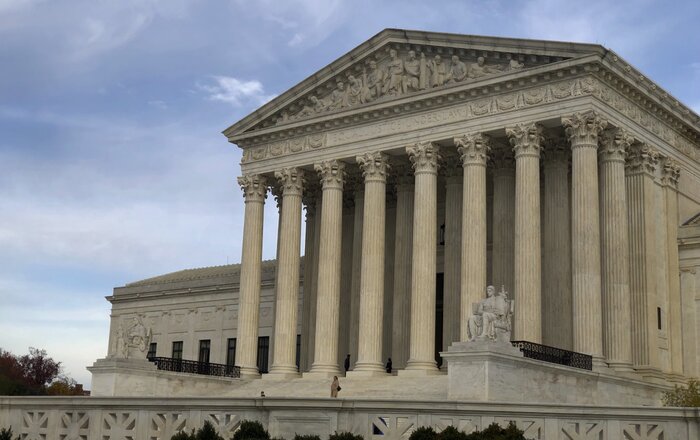Written By:
 Salvatore Nuzzo
Salvatore Nuzzo
Your Dedicated & Trusted Legal Team
3 Generations & 100+ Years of Combined Legal Experience

Due to the tight margins that many truck drivers and their carriers operate on, there’s a lot of pressure to keep a vehicle on the road as much as possible. This can result in neglect of the truck’s maintenance needs. If that neglect leads to mechanical failure while on the road, it can cause a serious accident. If mechanical failure on a truck is a factor in an accident, then anyone involved in the accident needs to know which party—the driver, the carrier, or even the mechanic—bears responsibility.
Driver Liability
The driver bears all the liability when an accident is the result of egregious behavior, such as driving while drunk, excessive speeding, and just plain recklessness. When it comes to mechanical issues, the driver is only responsible if he or she knowingly had faulty equipment. Examples might include bad electrical connections between the cab and trailer (which means the brake and/or direction lights weren’t working), tires that are far too worn or had a serious leak, and worn brakes that weren’t replaced when needed. The driver is going to be liable for an accident if he/she was aware of the issue, took the truck out anyway, and the mechanical issue played a role in an accident.
There are some key things to remember here:
- The mechanical issue has to be serious enough that a reasonable person would have taken the truck out of commission.
- The mechanical issue has to pose a clear risk to other drivers.
- The mechanical issue has to be observable and knowable to the driver.
If these are all true, and an accident occurs because of it, a person who is hurt may be entitled to more than just compensatory damages; they could seek punitive damages as well.
Of course, there is a level of judgement that goes into whether certain mechanical issues make it necessary to ground a vehicle. For example, one of the most common mechanical problems is a minor leak of oil or transmission fluid. If the driver keeps an eye on the fluids, he or she could stay on the road and operate that vehicle safely. Similarly, a slow leak in a tire may be manageable. A tire that’s only losing 8 to 10 lbs of pressure per stop is not a big risk. If that tire were to suddenly blow while on the road, the driver can argue that he or she had no reason to suspect that would happen.
Carrier Liability
A carrier can only be liable for an accident caused by mechanical failure if the company owns the vehicle. Even then, the driver may take on some responsibility if the mechanical failure in question is one that he or she could have noticed before taking the vehicle on the road. Most drivers have to sign off on an inspection sheet certifying that the vehicle is in order before leaving the truck yard.
But there are things the driver may not know about that the company (if it owns the vehicle) is fully responsible for. This can be a faulty transmission or an engine that isn’t operating on all cylinders. If the drive train isn’t operating effectively or the axles are damaged, it is the company’s responsibility to know and to ground the vehicle until the issue is repaired.
When it comes to a personal injury case, the challenge is whether the company knew—or could have known—this mechanical issue existed. Obviously, a company cannot fix an issue it was unaware of or that occurred without warning. But this is rare.
Ultimately, the carrier company is responsible under a legal theory called respondeat superior. This means they are responsible because they are the boss/owner/supervisor in charge. Under that legal doctrine, the company will almost always be held liable to a certain degree.
Mechanic Liability
Some large carriers have in-house mechanics who work on their fleet. In these cases, you don’t have a single mechanic that handles one truck; it’s a team. Regardless, the carrier is the respondeat superior and takes the most responsibility.
In rare instances, one or more individual in-house mechanics may be named in a lawsuit if it can be shown that the person(s) knew they needed to replace a part or perform a repair and failed to do so. Sometimes a mechanic might salvage a part from one truck and use it in another to save money. If he or she does that, they are acting under the expectation that the part is good and won’t fail. If it does fail, the mechanic can be held liable.
If the mechanic is not part of an in-house team, this can change things. If there is a faulty repair or a mechanical issue is missed during routine maintenance, now the third-party repair shop and/or individual mechanic(s) can be named in the lawsuit.
Even then, the company or driver (whichever owns the vehicle) can’t fully wash their hands of the matter. The company has supervisors and foremen who are responsible for knowing what’s going on with the fleet and ensuring repairs are made. If the driver is the owner of the vehicle, he or she may not be able to avoid liability either. It’s possible that all three parties—company, driver, and mechanic—will become defendants in the case.
It’s possible that all three parties—company, driver, and mechanic—will become defendants in the case.
Sometimes this is done strategically by a personal injury attorney. Depending on the relationship between the parties, the insurance company for the carrier may find themselves hiring separate attorneys to represent each defendant even if they are not technically employees. The carrier company will assume the costs for these attorneys, who will run parallel investigations, thereby doubling or tripling the bill. The carrier may do this to ensure that the other parties don’t attempt to shift all the blame onto them. At the same time, the excessive cost becomes an incentive to settle quicker, which often happens.
Cargo Loader/Loading Company Liability
Although not mechanical in nature, per se, an imbalanced or improperly secured load can be a major cause of accidents and the liability is not always on the driver or carrier. If a load isn’t balanced, the truck can fishtail, buckle, or flip. Similarly, an unsecured load either inside a container or on a flatbed can cause problems that result in accidents and injury.
Many drivers pull containers that have been loaded for them at loading facilities or distribution centers. The driver, in essence, pulls up his cab, hooks up the container, and takes it to its destination where he or she unhooks and grabs another container. UPS, FedEx, and Amazon hire many truckers in this way. If the trailer is overloaded or imbalanced, the distribution center and/or individual cargo loaders can be exposed in a lawsuit should it cause an accident.
It’s Rare that No One Is Liable
The issue at the center of any mechanical-induced accident is foreseeability. You look at maintenance logs and maintenance procedures. In my personal vehicle, I get a notice on my dashboard when service is required. Newer truck models also have these kinds of notification systems. Most trucking companies require the driver to record oil changes, tire changes, and so on. This is all information that is kept and can be used to see if there was evidence of an imminent failure or reasonable risk of failure after an accident occurs.
It is exceedingly rare that a mechanical issue is so sudden and unexpected that no one—not the mechanics, the driver, or the carrier company—could have foreseen it. And if that is the case, then it may mean looking to the manufacturer of the vehicle or a specific part to see if it’s a product defect.
In any accident involving serious injuries, a person needs to hire an attorney immediately for three reasons. Firstly, the attorney will be able to figure out which parties to sue. Secondly, the attorney can put all possible parties on notice to preserve evidence. That means all maintenance logs, driving logs, and any other relevant information will be made available for review. Thirdly, an attorney may want to hire an expert to examine the vehicle(s) in question. All of this can help to figure out who knew (or should have known) of an issue and when.
 Salvatore Nuzzo
Salvatore Nuzzo
About The Author
Salvator Nuzzo has spent more than 30 years as an insurance adjuster for various major insurers. Throughout his career, he has handled an estimated 8,000 claims.
Read MoreLatest from Our Blog



Editorial Standards
Rosenblum Law is committed to delivering informative content of the highest quality. All content is subject to our rigorous editorial standards for relevance, accuracy, sourcing, and objectivity. Everything is fact-checked by an editor and reviewed for legal soundness by one of our practicing attorneys prior to being published.
How to Cite Rosenblum Law’s Article
APA
Salvatore Nuzzo (Sep 7, 2018). How a NY Traffic Ticket Impacts Quebec Drivers. Rosenblum Law Firm, https://rosenblumlaw.com/how-a-ny-traffic-ticket-impacts-quebec-drivers/
MLA
Salvatore Nuzzo "How a NY Traffic Ticket Impacts Quebec Drivers". Rosenblum Law Firm, Sep 7, 2018. https://rosenblumlaw.com/how-a-ny-traffic-ticket-impacts-quebec-drivers/
